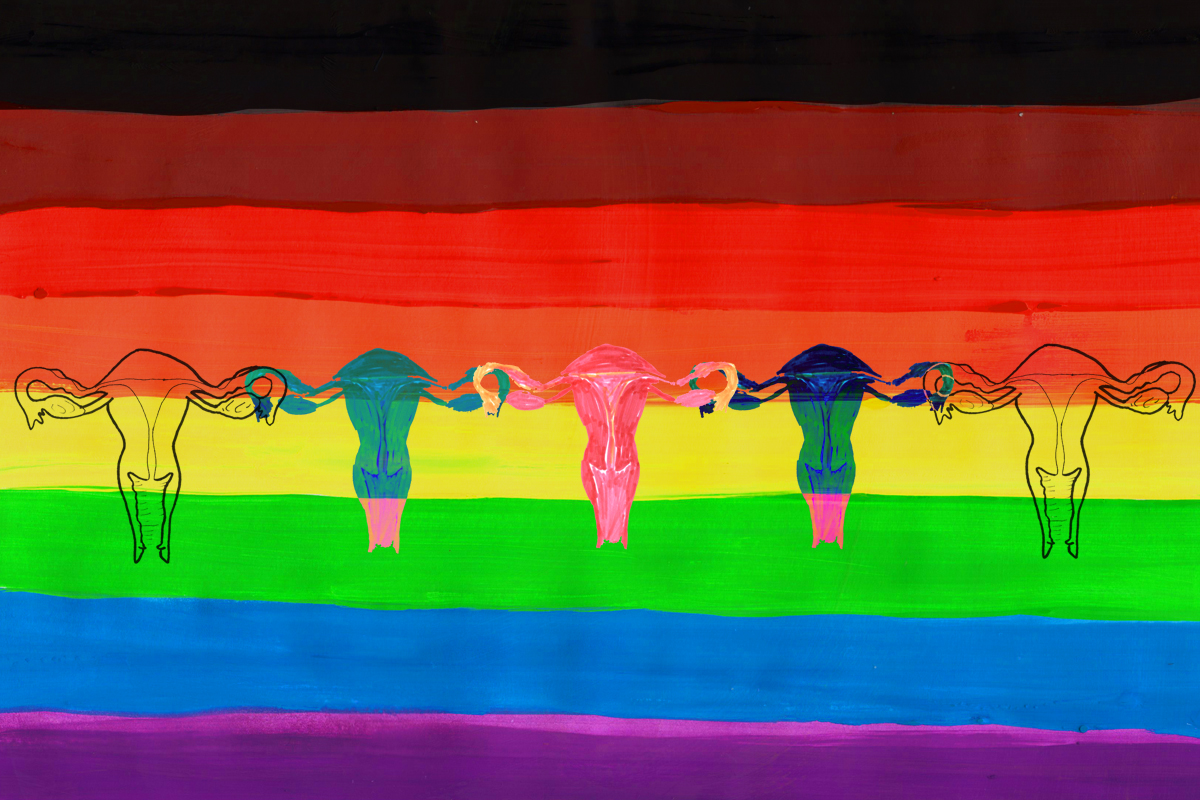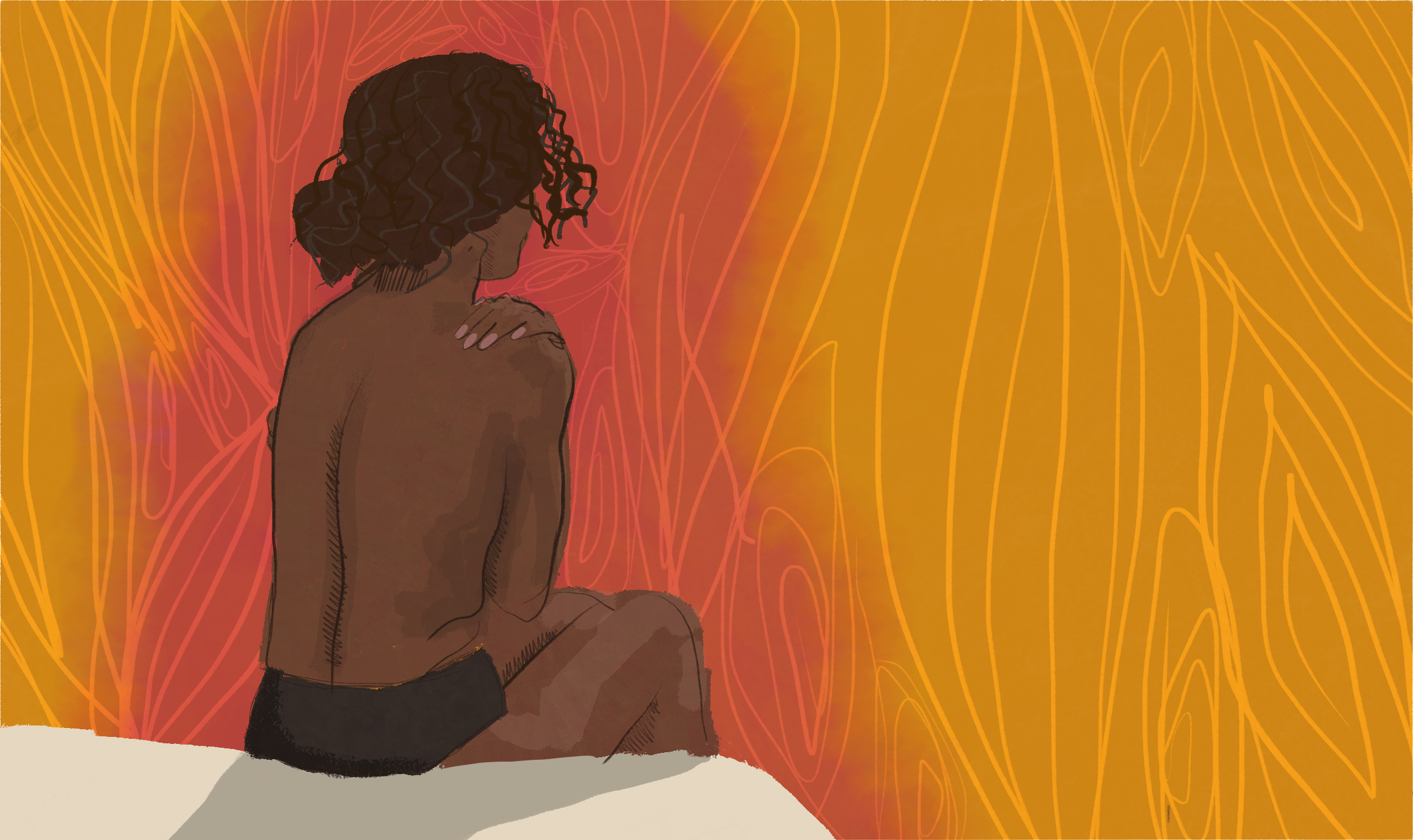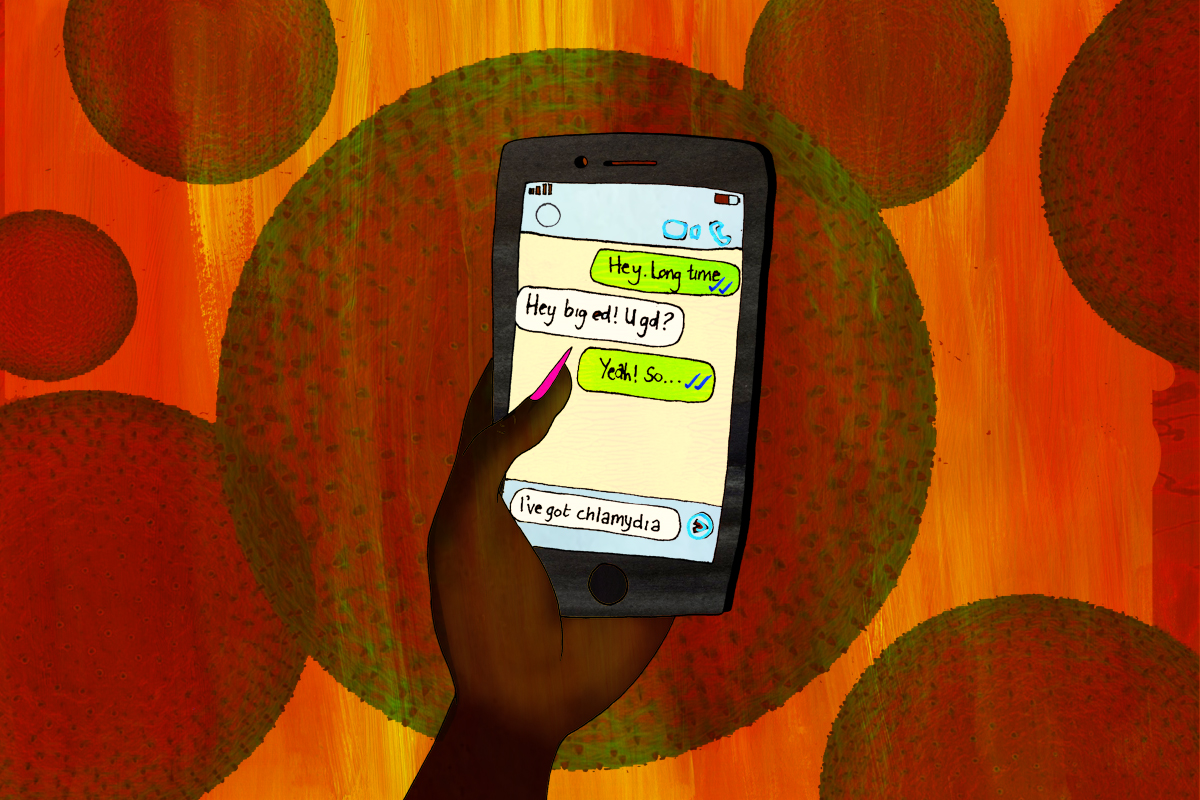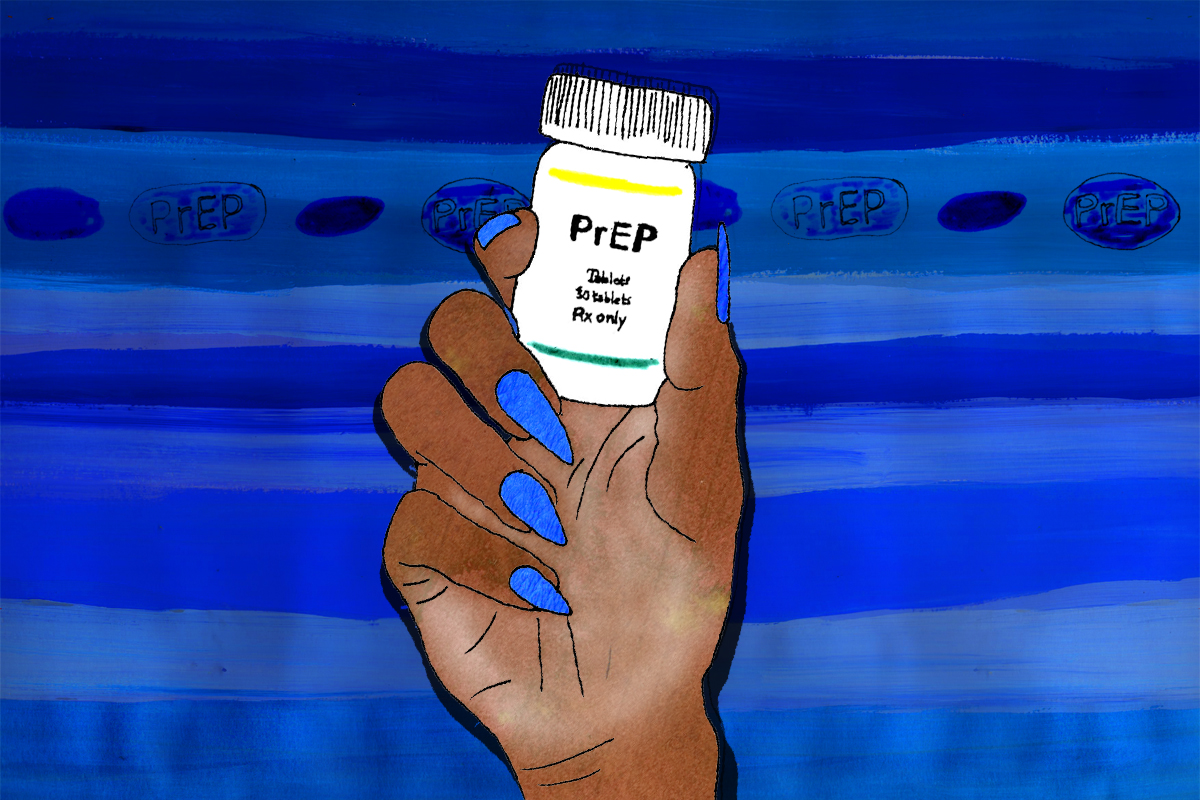
Illustration by Tessie Orange-Turner
The first time I had a cervical smear test, over 10 years ago, I lied. I told the nurse that I hadn’t had sex for over a year. I didn’t see it as a lie, rather a withholding of all of the facts. I had been seeing a woman for about eight months, so I assumed they didn’t need that information. And quite frankly, I wasn’t ready to share it. Less than a handful of people knew I was bisexual, and I hadn’t had penetrative sex in a lot longer, so I figured, that’s all they really needed to know, right?
That would be wrong. HPV (Human Papillomavirus), which is a common cause of cervical cancer, can be contracted by any skin-to-skin contact of the genital area; vaginal, anal, or oral sex; and the sharing of sex toys. The common misconception, that women who only have sex with other women are exempt from the virus, is a myth and extremely dangerous.
“37% of lesbian and bisexual people are told at one point they don’t need a cervical smear test because of their sexual orientation”
But chances are, if I had let my doctor in on my secret, I may have been told I needn’t have a smear test at all. In fact, a study in north-west England found that 37% of lesbian and bisexual people were told at one point they didn’t need a test because of their sexual orientation. So, I guess I was one of the lucky ones. It turned out I had abnormal cells and needed further testing in the form of a colposcopy.
Back then, I wasn’t aware of the discrimination I might face as a queer woman, I just didn’t want my records to reveal my preferences. In the event that I was sectioned against my will, or died, I couldn’t risk my family finding out something I wasn’t ready for them to know.
That first smear test was uncomfortable and unnerving, given the fact that I thought at any moment the nurse might declare war on my tense and stubborn sexual anatomy which did not want to be bothered. After 25 harrowing minutes, the swabs were obtained, and I gingerly waved so long to a person I would likely not see again but would certainly never forget.
Now, at 31 and no longer hiding my sexuality from friends and family, I still don’t like to talk about it with healthcare professionals. I’ve never had normal results from a smear test, so I’m required to be subjected to one more regularly than most. This means heteronormative assumptions and awkward conversations annually with a stranger, right before they stick an abnormally sized speculum (seriously, someone must have a complex) into my vagina.
I don’t mean to be ungrateful. Free healthcare is a luxury I don’t like to take for granted. And let’s face it, being able to access free preventative medical care because I have a woman’s anatomy is a luxury.
“As a black woman, I am part of a marginalised community who are being left behind in terms of our sexual health”
Because as a woman, I am less likely to be taken seriously for health concerns. As a black woman, I am part of a marginalised community who are being left behind in terms of our sexual health and sexual healthcare. And as a queer woman, I am likely to be discriminated against by healthcare professionals. But I do always remind myself, every time I feel uncomfortable being grilled about my sexual orientation and history, of how lucky I really am.
I do, however, wonder how many years it will be before I’m able to look a doctor in the eye and tell them that the intrusive questions they ask me are redundant and irrelevant to my treatment. I have a cervix, and so regular screening is necessary.
And still, I don’t keep close track of when my last screening was. When I get a reminder letter, I wonder where the year has gone, ponder the weather and think about what I might watch on Netflix that evening before I even consider writing the date in my diary. More often than not I’ll leave it in the pile of junk mail I’ve received that day and push the importance of it to the back of my mind.
The importance of it was something frightening overlooked by NHS contractor, Capita when it failed to send out over 40,000 invitations and reminders for smear check-ups and follow-ups in 2018. Other than worrying about my erasure as a queer black woman, I also have to be concerned that the incompetence of a company linked to my only healthcare provider could be my demise.
I also think about the significant number of unlawful, immoral, and unfathomable colonial practices that have been forced upon women of colour, only within the last century. Is it any wonder that I am less inclined than a white woman to keep tabs on when I should go to the hospital to be put in a vulnerable position, and not really be confident about what’s being done to, or taken from me?
I guess it’s not all bad. I’ve had experiences with nurses who are gentle and kind. I’ve been lucky enough to have conversations with friends about the nagging fear I have after every test. I have access to literature and support, should I feel I need it. But what I’ve learnt most from getting a smear while black, queer, and a woman, is that no matter the experience, it’s still vital that I have them and encourage all of the people I know with a cervix to have one.
This article is part of gal-dem’s Sexual Health Awareness Week series. You can keep up with the series here









